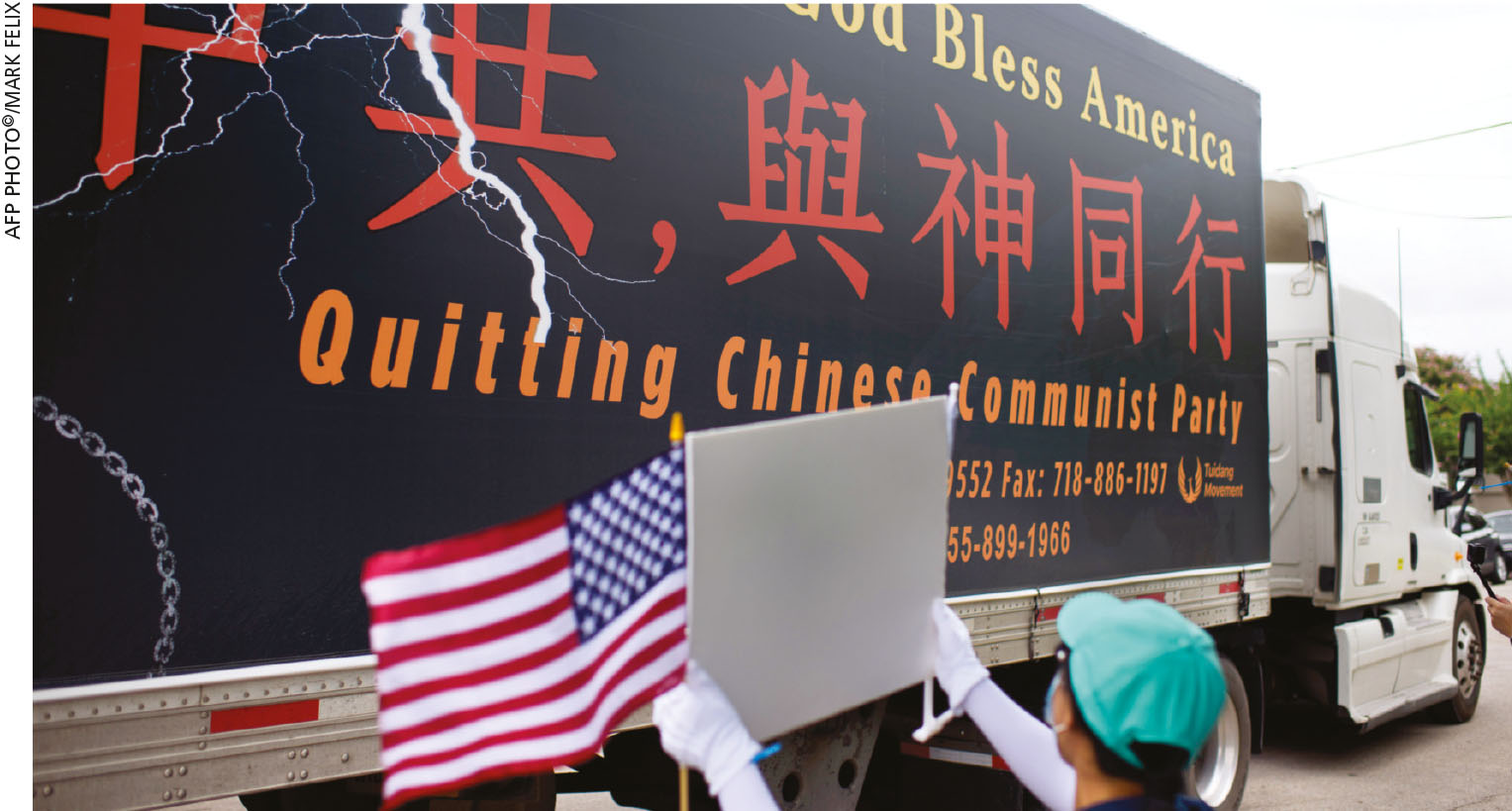COLD WAR BLUES
A COLD DRAFT IN THE ROOM
Sandesh Bartlett argues why Sino-American tensions aren’t a Cold War – as yet
When the former US president Ronald Reagan demanded that his Soviet counterpart Mikhail Gorbachev “tear down this wall,” it foreshadowed the end of decades of geopolitical tensions between the US and the USSR.
The latter’s dissolution in 1991 marked the end of a period of distinct cultural, economic and political tensions between the two blocs created in the wake of a World War and emerging postcolonial states.
Year 2020 has witnessed the term ‘Cold War’ return to frequent use in hysterical news headlines and impassioned political speeches, suggesting that global tensions are intensifying. However, in place of communist USSR, as the rival of the US stands China, history’s veritable sleeping giant now wide-awake from its slumber.
While tensions between the two have been frequented by a flurry of economic and diplomatic arm wrestling, do recent events qualify as a ‘Second Cold War’?
There can be no denying that Sino-US relations have been the worst since President Richard Nixon visited China in 1972, ending years of Chinese diplomatic isolation. The Trump administration’s order to shut down China’s consulate in Houston was met with a tit for tat response by Beijing when the US consulate in Chengdu was closed as Chinese citizens cheered.
Relations have always been destined for collapse. July’s row was a milestone preceded by escalating trade wars, US accusations of Chinese intellectual property theft and political intervention amid barbed comments from China.
Yet, this in itself demonstrates that Sino-American tensions have been preoccupied with non-traditionalist views of security that did not dominate US-USSR tensions.
Instead of the space and nuclear arms races that dictated the politics of the Cold War, Sino-American tensions include dimensions of financial and technological strain – and of late, public health, owing to COVID-19 blame games.
In an interview with Al Jazeera, the President of the Council on Foreign Relations Richard Haass lists factors that suggest these tensions do not indicate a ‘cold war’ as is commonly understood.
While the US and its democratic NATO allies made a strategic bulwark against the Soviet Union and its communist dependencies during the Cold War, the Trump administration has actively sought to isolate itself from its traditional allies, creating fewer fronts from which it can coordinate to coerce China.
This was evident when the administration’s first major foreign policy decision was to pull out of the Trans-Pacific Partnership, severing the US from countries that controlled 25 percent of the world’s GDP, which could have put economic pressure on China to comply with issues pertaining to Hong Kong, the suppression of Uighurs, intellectual property theft and so on.
Domestic turmoil in the United States has compounded this. Mass protests for racial equality, careless management of the pandemic and subsequent economic fallout beleaguer the administration, and limit its ability to command the world stage.
While the Trump administration has targeted Chinese technology prowess (notably, the two major figureheads of China Inc. – TikTok and Huawei – over concerns regarding data privacy and spying), Haass notes that if America is to distinguish itself, readily available substitutes from the US or its allies are imperative.
Regardless, whether this harkens a Second Cold War is made uncertain by the fact that there is significant power posturing by both countries, owing to the US political calendar and Beijing’s attempts to absolve itself of its cover up of the severity of COVID-19.
The Trump administration, eager to build momentum into the November presidential election, has blamed China for the pandemic inter alia and invoked a Cold War lexicon claiming that President Xi Jinping views himself as Stalin’s successor.
Yet, the mention of Stalin should make a strong case for why this isn’t a cold war; Sino-American tensions are without a great ideological struggle. Ultimately, tensions do not permeate all levels of modern life in the same way the Cold War affected every strata of society.
Ed Sheeran may not release a song titled ‘Chengdu’ in the same way Dschinghis Khan sang ‘Moskau’ or The Beatles rocked ‘Back in the U.S.S.R.’ Tensions lack the same ideological thrust of the Cold War and have yet to permeate human culture in the same way.
While Chinese foreign policy has been expansionist and even brutish (considering its recent escalations in Ladakh), it doesn’t reflect the same climate of the communist strongholds of the Cold War pitted against a democratic NATO bulwark with the complication of proxy wars.
Concomitantly, prospects of direct and nuclear conflict mark a comparatively insignificant presence in the perception of the 21st century citizen; supranational organisations (in spite of their waning power) make nuclear destruction less likely than in the past.
This isn’t a Second Cold War yet but rather, a conflicted US abdicating its role to an expansionist China. Even so, it would be remiss to ignore the nip in the air.






Leave a comment